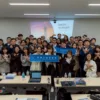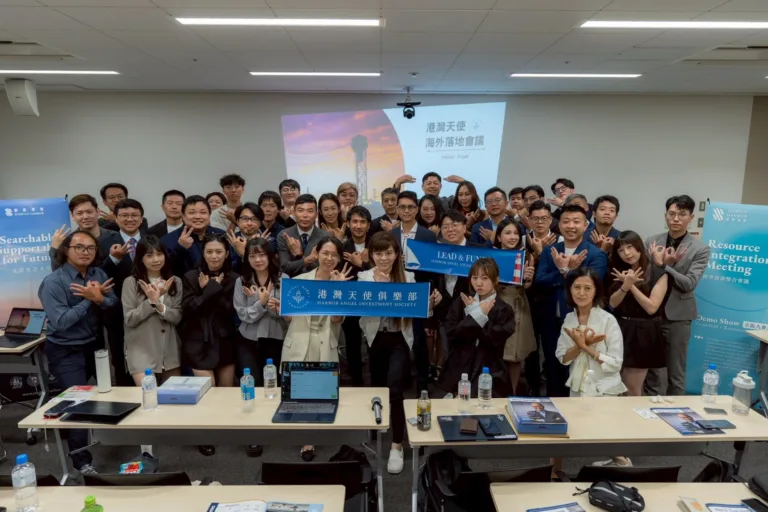Reprint to Financial Weekly
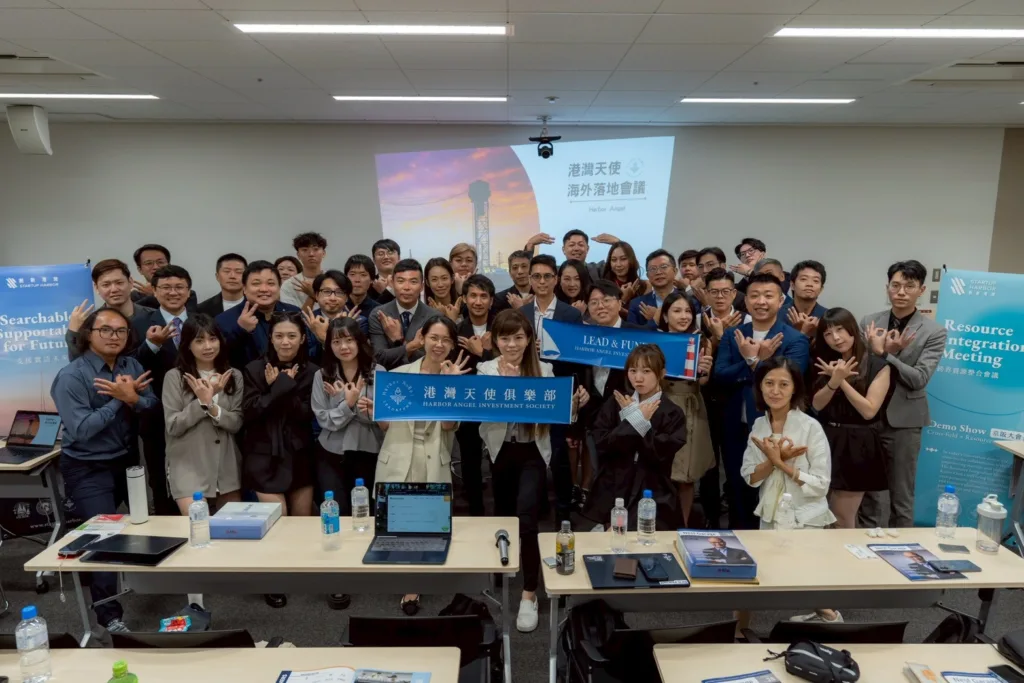
Business Media | Reporter Ma Zhaolin / Comprehensive Report
The 2025 World Expo (EXPO 2025 Osaka, Kansai, Japan) in Kansai, Japan, is not only a global focal point but also a new opportunity for industrial, cultural, and innovative exchange between Taiwan and Japan. This August, with the launch of "We Taiwan Culture in Osaka. Kansai Expo" and "2025 Taiwan Tech Week," hosted by the Ministry of Culture and the National Development Council, respectively, exchanges between the two countries continued to heat up. In early September, the "2025 Cross-Border Resource Integration Conference – Keihan Conference OVERSEA DEMO SHOW 2025," hosted by StartUP Harbor, officially took place, marking the culmination of this year's Taiwan-Japan innovation connection.
The event was planned and executed by the Harbor Angel System, and brought together a "cross-domain innovation delegation" consisting of more than 40 Taiwanese startup entrepreneurs, academic representatives, and entrepreneurial mentors. The delegation traveled across seven days from Osaka to Kyoto. Through visits, exchanges, and presentations, they demonstrated how Taiwan's innovative power can cross borders and land in Japan, establishing a new model for international cooperation.
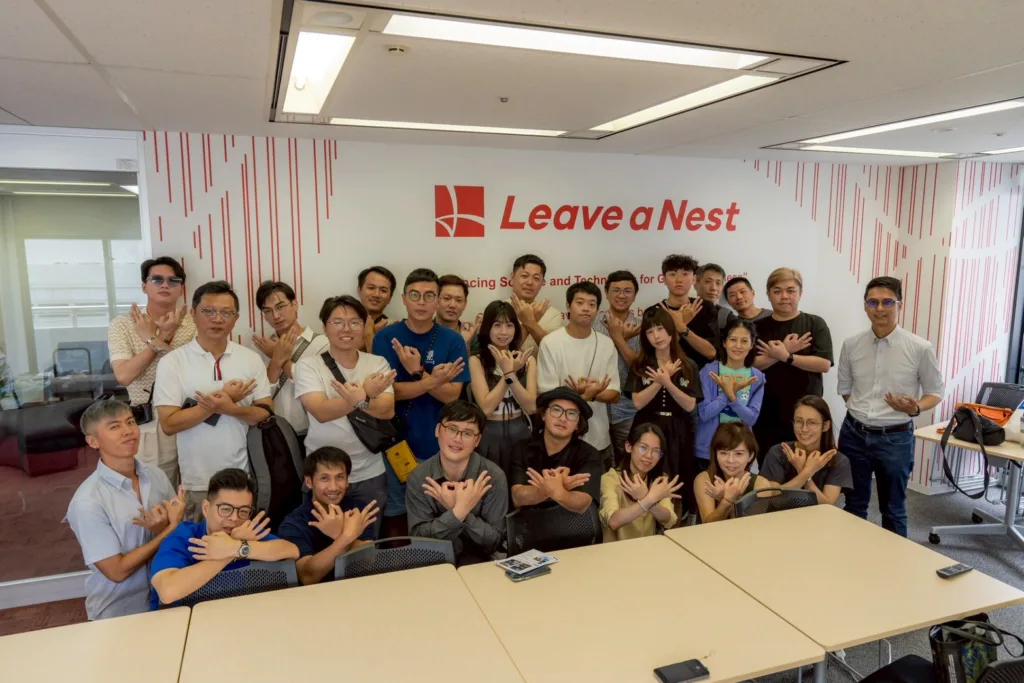
Osaka Expo × Taiwan Culture × Technology Exchange
The delegation's first stop was the Tech World (Taiwan Pavilion) at the Osaka Expo, which was bustling with activity and was one of the most anticipated venues of the year. The pavilion focused on interactive technological displays and cultural experiences, showcasing how innovation has become a new language for cultural output. Themed areas such as "Smart Manufacturing" and "Sustainable Creativity" symbolized the importance of Taiwanese creativity in global sustainable technology. The Taiwanese delegation, leveraging their multilingual skills in Chinese, English, and Japanese, helped visitors understand the cultural characteristics and background of the exhibition area. The delegation members were deeply honored to participate and support the exhibition in this way.
After the Expo, the group traveled to Osaka's iconic Aquarium Kaiyukan for a specially arranged "Taiwanese Culinary Exchange Dinner." The "Taiwan Food Taste" restaurant group partnered with renowned Chiayi restaurant Lin Congming Clay Pot Fish Head to bring authentic Taiwanese cuisine to Japan. The founders also shared how their brands, through standardized processes and quality management, recreate flavors and overcome challenges overseas. This was more than just a culinary feast; it was also a practical lesson in cross-border brand operations, demonstrating the possibilities of "culture as industry, culinary as diplomacy."
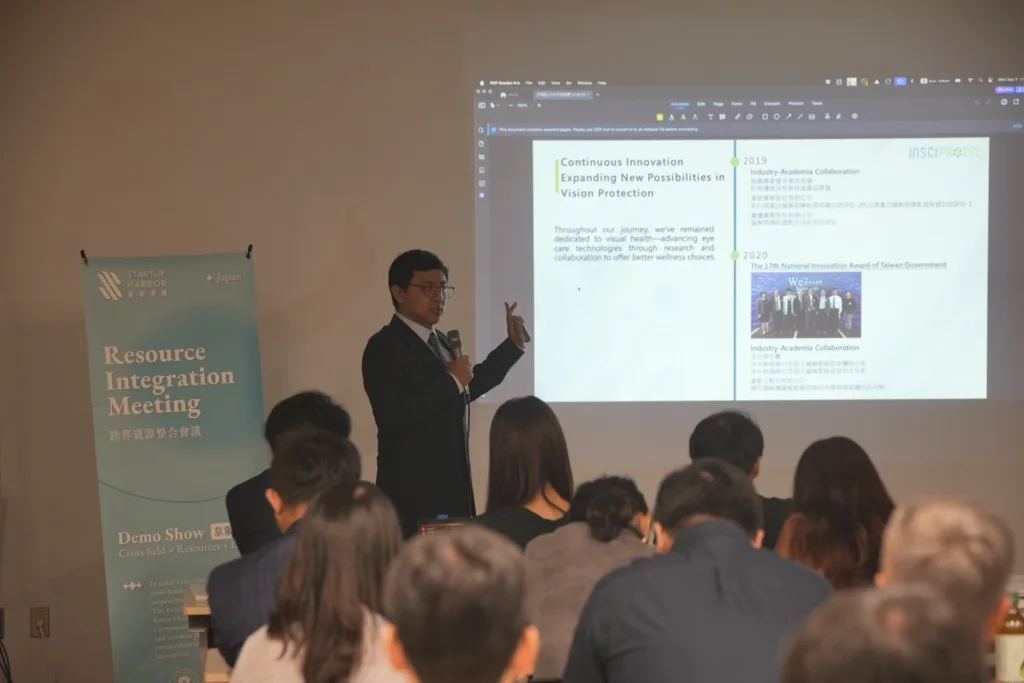
Enter Kyoto Innovation Forest KOIN
The delegation's second stop was in Kyoto, where they visited KOIN (Kyoto Open Innovation Network), the Kyoto Smart Industry Creation Forest. Jointly established by Kyoto Prefecture and industry, KOIN is one of Japan's leading startup acceleration platforms, attracting hundreds of innovative projects annually and focusing on industry-academia integration and smart industry transformation.
During this exchange, Mr. Yuki Kanayama, Deputy Director of KOIN's Startup Promotion Department, personally welcomed the delegation and delivered a keynote speech, explaining how Kyoto, through cross-industry co-creation mechanisms, is leveraging "traditional craftsmanship and next-generation technology" as a driving force for startup growth. Kanayama noted, "Kyoto's entrepreneurial energy stems from openness and collaboration. From craftsmanship and culture to AI, every technology is interconnected." He also stated that, based on startup incubation data across Japan, Kyoto has long been a popular choice for startups, and expressed his welcome to the Taiwanese delegation.
Cross-border integration meeting × international judges gathered together
The event culminated in the "2025 Cross-Border Resource Integration Conference – OVERSEA DEMO SHOW 2025." Held at the Kyoto Economic Center, the conference was co-organized and judged by Leave a Nest, a Japanese knowledge manufacturing research group.
Dr. Yev, CEO of Leave a Nest Philippines branch, and Ms. Nami, representative scholar of Japan's Startup Strategy Department, were specially invited to give speeches.
Dr. Yev stated, "The Kansai region, with its diverse culture and manufacturing base, is an ideal testing ground for Taiwanese startups. We hope to transform collaboration into true productivity through 'knowledge manufacturing.'"
Ms. Nami emphasized: "The key to changing the world is not just technology, but belief." She expounded on the underlying philosophy of entrepreneurial success under the theme of "Belief × Practice × Education."
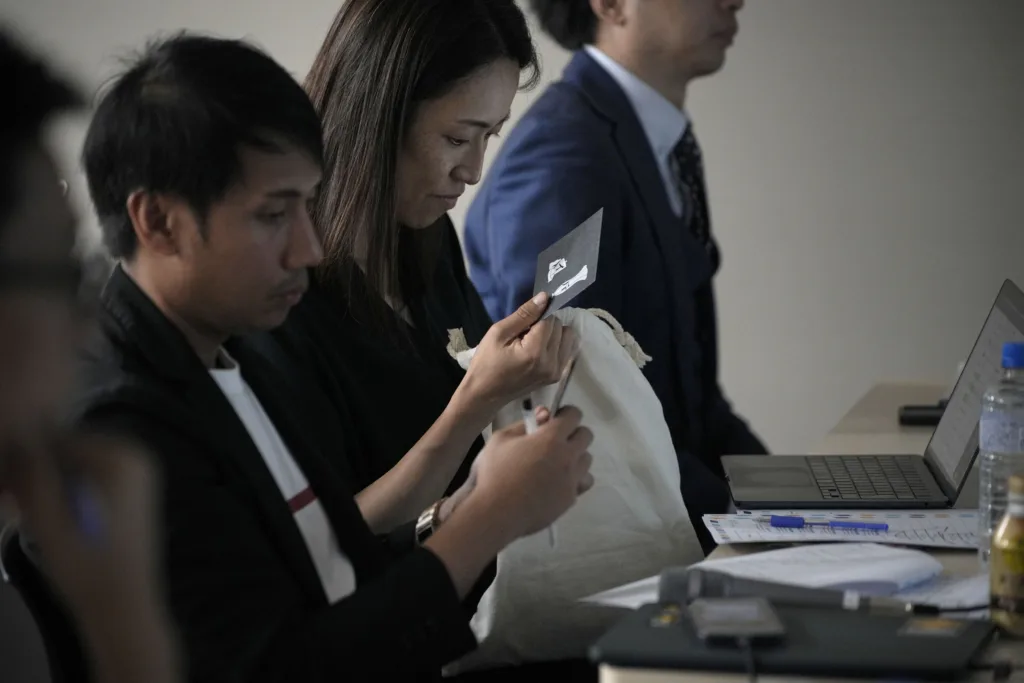
Mr. Ocean Ng, co-founder and COO of MAPXUS (BeeMap Technology), a multinational mapping company based in Hong Kong and Taiwan, also gave a presentation. MAPXUS is an Apple Asia partner and has received investment from Kawasaki Heavy Industries. Its mapping system has been deployed and commercialized at Mitsui Shopping Park LaLaport throughout Japan, making it a benchmark for multinational startups in Asia in recent years. Mr. Ocean spoke on the topic of "Localization Strategies for Urban Mapping," explaining that the key to landing in the Japanese market lies not only in technology but also in cultural understanding and long-term trust. He also analyzed the latest trends in smart cities in Asia.
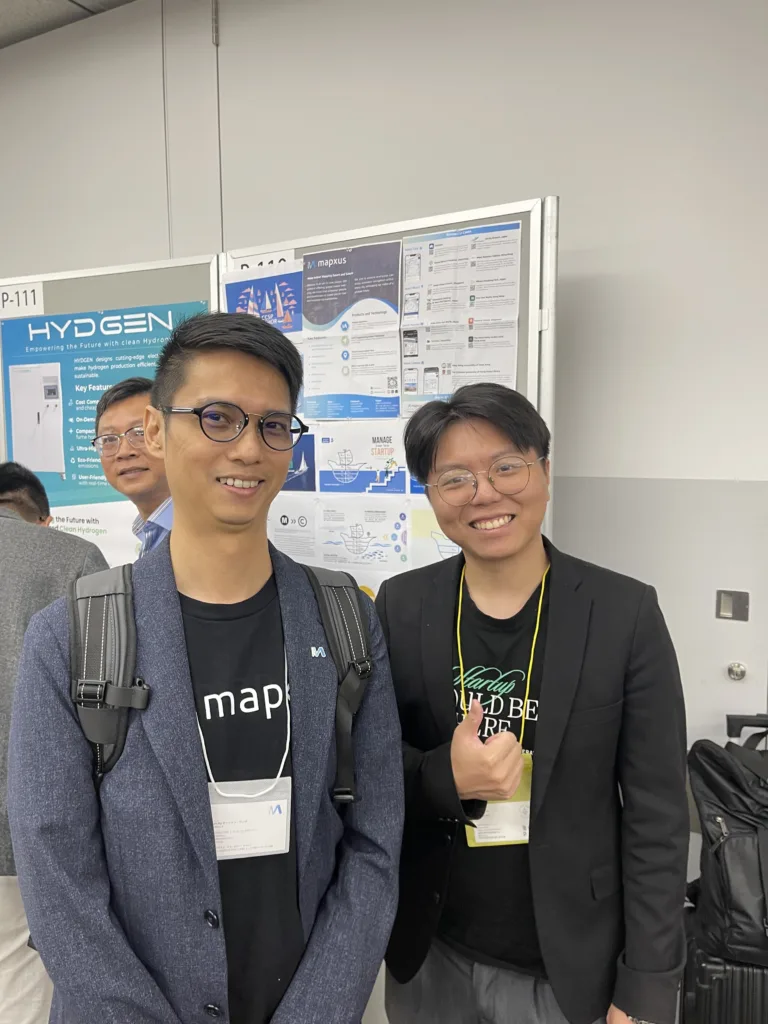
Taiwan's three major startup teams took the stage
During the DEMO SHOW session, three Taiwanese startup delegations officially debuted:
1. CocoMart - A one-stop SaaS procurement and supply platform built for the catering industry, it integrates ordering, reconciliation and matching processes to help catering operators reduce procurement costs and improve efficiency.
2. Wildfire Project – An innovative team combining AR augmented reality and scripted gaming, dedicated to reimagining scenic area navigation and immersive experiences using Web AR technology.
3. Sun Yat-sen University Vision Research and Innovation – an academic and research team focused on the development of eye care and visual medical technology, demonstrating the potential of a new generation of medical innovation.
The three teams presented their "Japanese Market Landing Strategies" and "International Cooperation Concepts," which received enthusiastic responses from the judges and the audience, demonstrating Taiwan's creativity, courage, and initiative.
Garage Minato: The intersection of creativity and manufacturing
On the third day of the event, the delegation visited Garage Minato (Neiko Precision Co., Ltd.) in Osaka's Minato District, a "creative realization factory" designed specifically for startups and researchers. Combining maker culture with manufacturing techniques, the space offers open workshops and rapid prototyping equipment to encourage cross-disciplinary collaboration. Its philosophy is: "Only when researchers, craftsmen, and startups understand each other can creativity become reality."
The successful "Sakugoe" (a new baseball batting base) was showcased at the event. Combining traditional technology with innovative design, it has become a signature product of Garage Minato. This project inspired the Taiwanese startups present, highlighting the concept that "innovation is not just about technology, but about connecting with people." A Rotarian from Taichung also expressed interest in ordering this training device, hoping to donate it to a Taiwanese elementary school baseball club. A lively discussion ensued, creating a lively conversation.
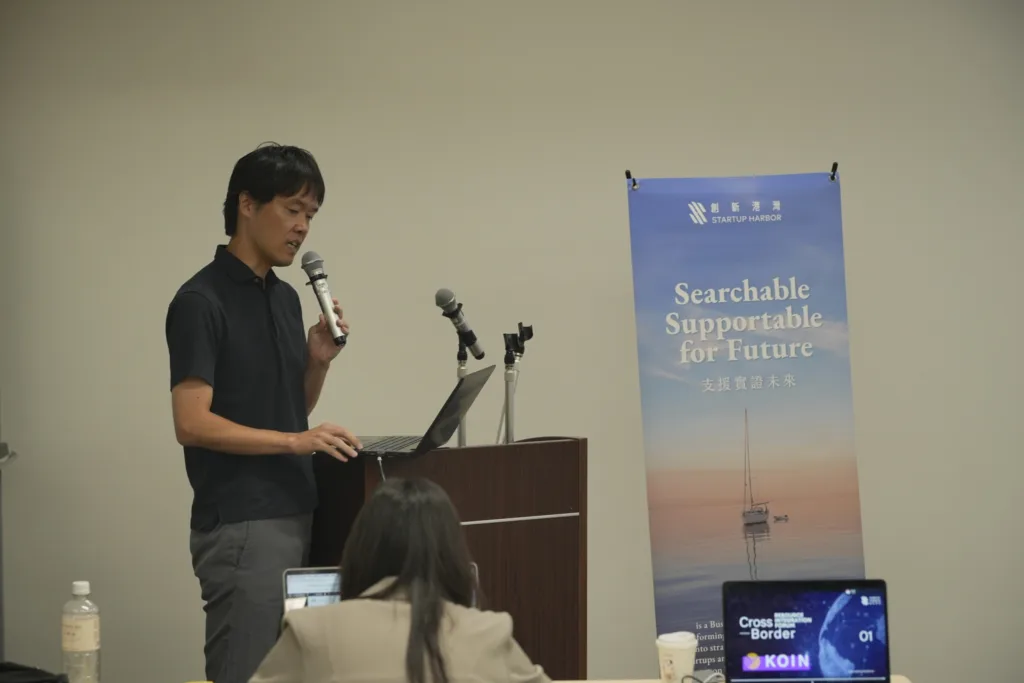
International Debut × CCSP System Launch
The final stop was the Startup Harbor delegation, which took the international stage at the "Super-Differentiation Society Osaka Conference." This event, jointly promoted by international organizations such as Leave a Nest, Science Castle, and Tech Planter, featured an open format that encompassed diverse fields, ages, and nationalities, inviting teams from 17 countries to present their latest research, projects, and innovative achievements. The Startup Harbor team was honored to be invited to represent Taiwan at the exhibition and presentation event. During the event, the delegation introduced Taiwan's independently developed "CCSP Commercial Ship Model System (CORP. & COOP. SAIL PLAN)" to Mr. Shuichiro Takahashi, President and COO of Leave a Nest, and a group of international startup representatives. This system uses a "ship diagram" to visualize a company's twelve resource blocks and six major resource nodes, facilitating resource allocation and operational status. It has been implemented in multiple accelerators and entrepreneurship programs, helping startups establish MVPs (Minimum Viable Products) and conduct market validation. This cross-border exhibition in Japan symbolizes the CCSP system's official entry into the international stage and also marks a new milestone in Taiwan's entrepreneurship education exports.
From culture to technology, from concept to action
The seven-day event spanned Osaka and Kyoto, exploring cultural, manufacturing, entrepreneurial, and technological sectors. Whether it was Lin Congming's casserole fish head brand's global expansion, Garage Minato's industrial creativity, or Leave a Nest's knowledge-based manufacturing philosophy, they all revealed a common theme: "crossover" is no longer a formality, but an everyday part of innovation.
The Harbor Angel System executive team stated:
"This event allowed us to witness the strength of Taiwan's startups and the maturity of Japan's entrepreneurial ecosystem. We look forward to fostering more cross-border collaboration projects before Expo 2025 Osaka concludes, establishing Taiwan as a key node in Asia's innovation network."
StartUP Harbor, a cross-sector startup integration and acceleration platform operated by the Harbor Angels Alliance, is dedicated to connecting the Taiwanese and Japanese entrepreneurial ecosystems and promoting the implementation and expansion of startup teams in the Asian market. The platform comprises Angel Club communities in Taipei, Taichung, Kaohsiung, Bangkok, and Kuala Lumpur; the startup accelerator CCSP (Commercial Ship Model System); and the Overseas Brands Localized Accelerator OBLA (Overseas Brands Localized Accelerator). Together, these three form a hub for replenishment, repair, and upgrading the Asian innovation ecosystem, known as the "Harbor System."

